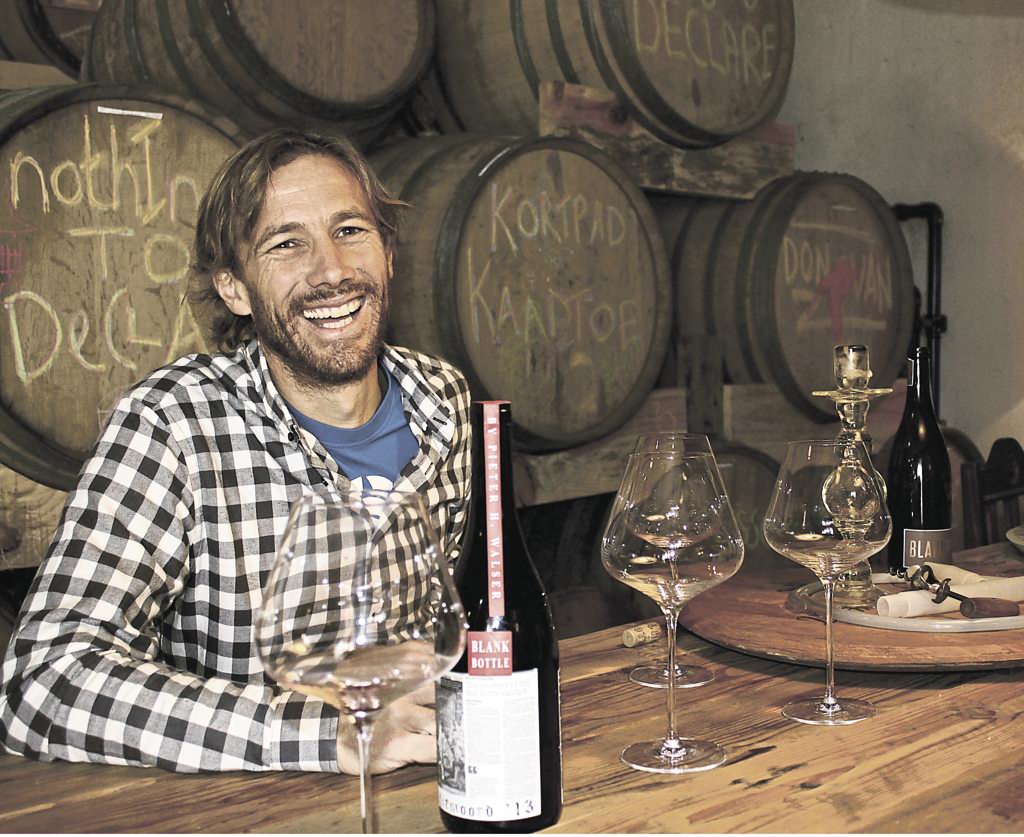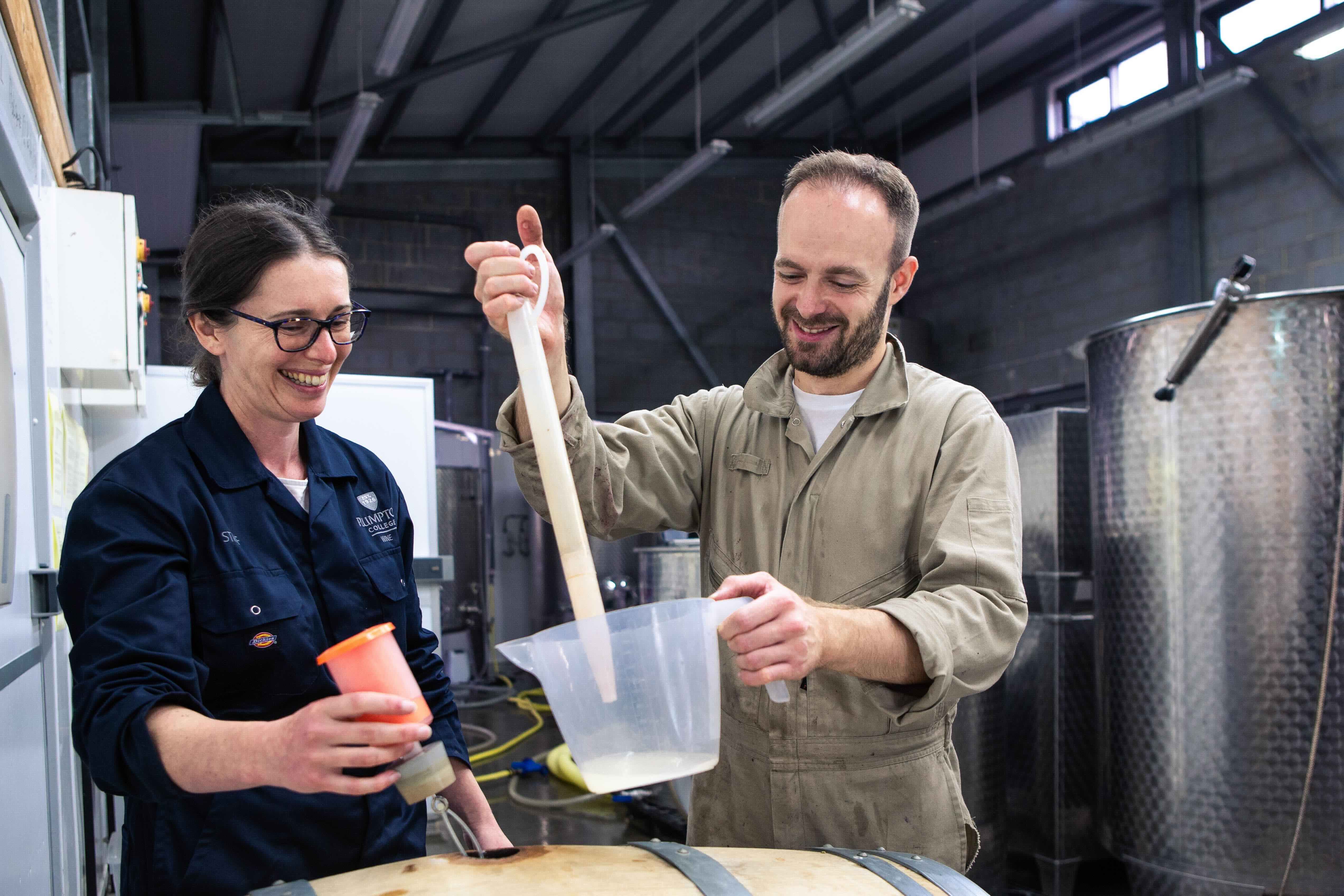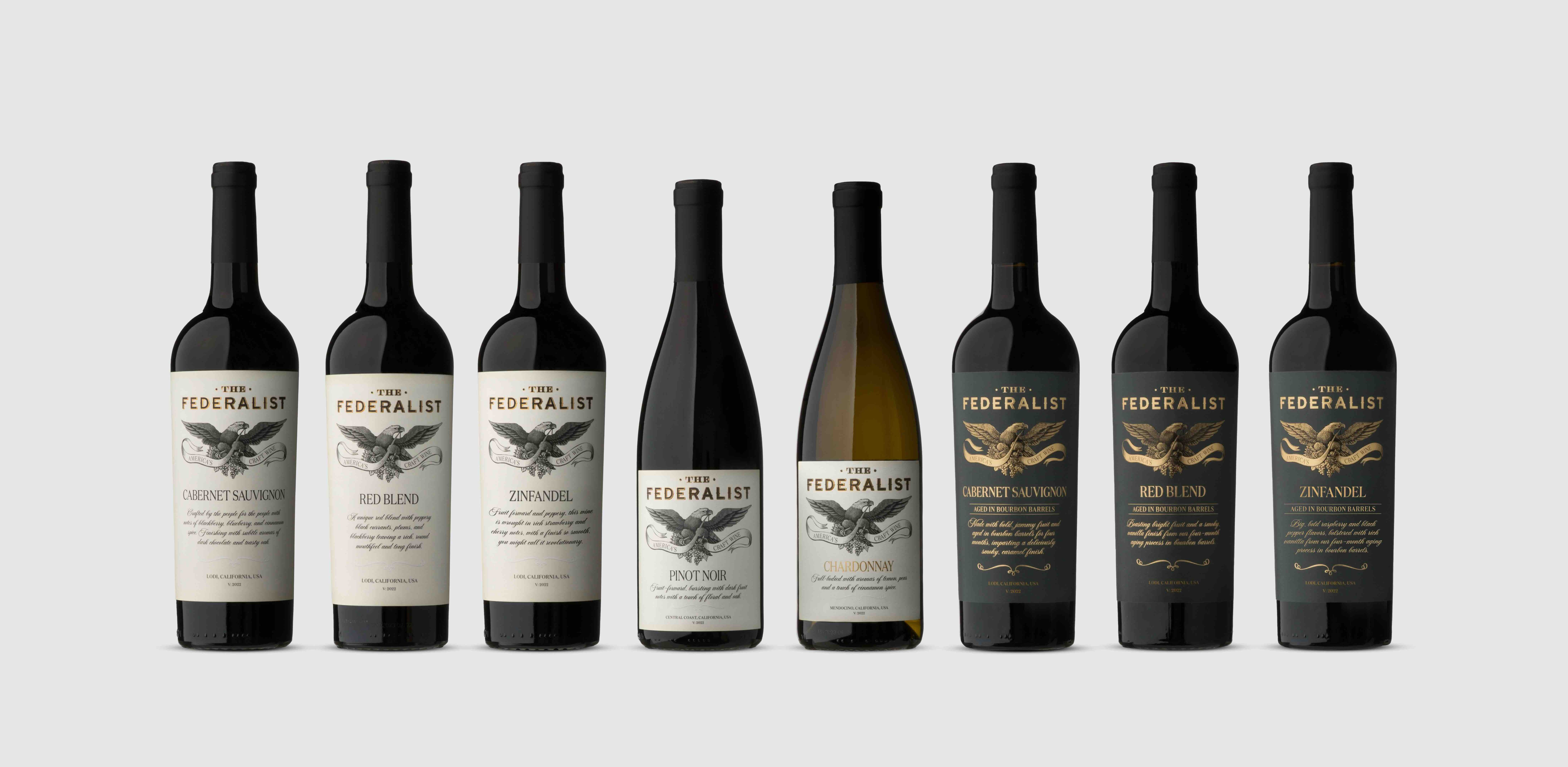BLANKbottle winemaker Pieter H Walser has a ‘punk’ approach to winemaking, ripping up every rulebook there is going. But his excellent South African wines speak for themselves.
As rebel winemakers go, Pieter H Walser is about as rebellious as you can get. This is the South African behind BLANKbottle, the winery that picked up a good deal of press recently on account of one of its wines, Limbic, having the blend chosen by the sub-conscious part of Walser’s brain hooked up to electrodes.
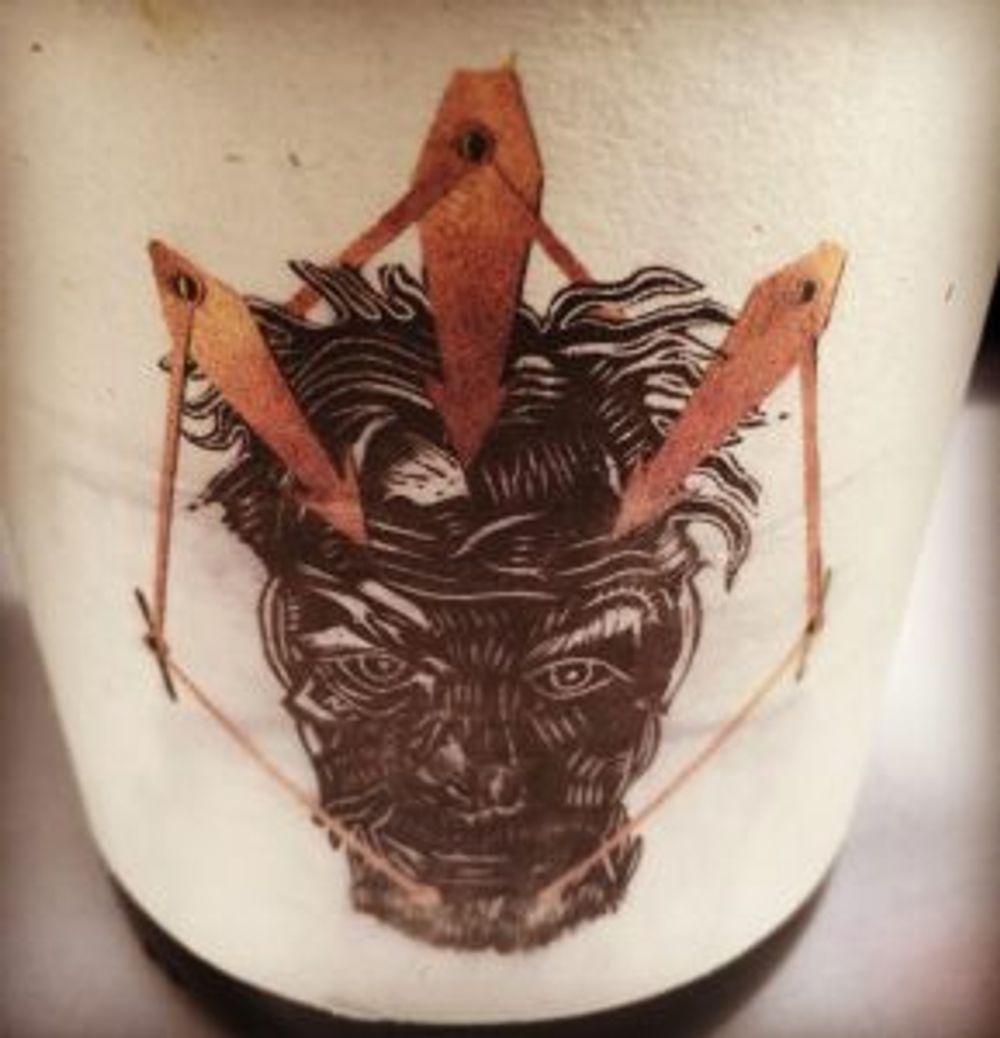
The label for Lambic, showing Walser’s subconscious being tapped by electrodes
“The day I pick them, I taste the grapes and I decide more or less what the wine’s going to be like, but it then goes through different phases during the winemaking process so by the time I need to bottle, I can become confused,” Walser tells The Buyer.
An EEG machine, hooked up to Walser’s brainwaves, measured his emotional response to 27 varietals and then the blend chosen for this wine on the basis of these responses.
It’s a typically wacky story from a winemaker and new-wave négociant who only buys grapes from farms whose quality and provenance appeals to him.
He likes every wine to have a story behind it, and every wine is sourced, made, bottled and labelled according to the story. Half of them will never see the light of day again such is this boutique approach.
Never judge a book by its cover
Walser started his label BLANKbottle because he was “fed up of tasting wines with fancy labels and wanted to create a wine brand that you could judge only on quality, not looks.”
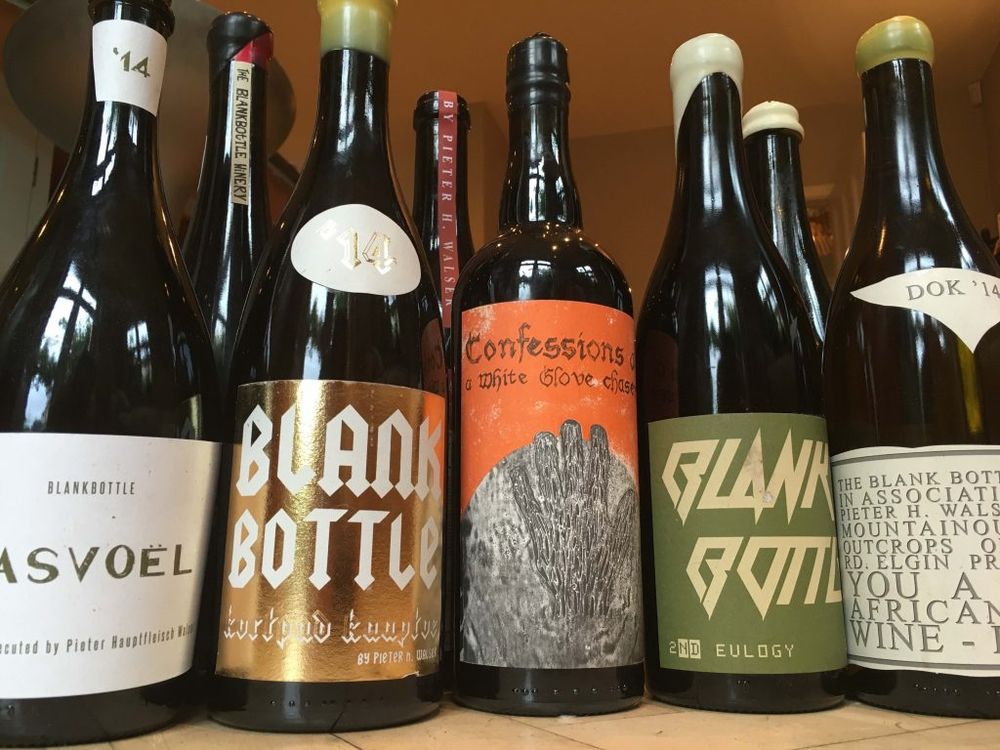
Each wine has a unique label, bottle and overall design
In order to understand the philosophy behind the winery there is the story about Walser’s first customer. A woman who came to his office 12 years ago and said that she wanted to buy some wine and she liked everything apart from Shiraz. She tasted some wine, loved it and bought three cases. It was Shiraz.
“It’s true, we do judge a book by its cover,” Walser says, “I want nothing on my labels.”
For this reason Walser only indicates whether the wine in the bottle is red or white, he never puts the varietals.
“When I started BLANKbottle, my goal was to create an honest wine brand that had no limitations when it came to style, vintage, area or cultivars in order to break down any preconceived expectations. Having no indication of cultivar on the bottle makes this possible.”
“Not only does it demand complete honesty when it comes to quality, but it allows me the opportunity to introduce once-off limited runs of interesting wines. Its flexibility turned out to be BLANKbottle’s edge. Something for someone with an open mind and an adventurous heart.”
The uniqueness and the small bottling means that restaurants which stock BLANKbottle can easily get exclusivity. The quality and style of the wines has also meant that they are getting seen in the right places. In London, for example, the wines are on the lists of La Trompette, Chiltern Firehouse, Nobu and Oxo Tower.
How BLANKbottle works
BLANKbottle started 12 years ago with Walser buying wine from other winemakers, blending it and bottling it. Five years ago he started buying grapes and making the wine himself.
He buys from 58 vineyards in the Western Cape, picking 28 varietals from 68 lots over a period of 100 days (Jan 7 – mid-April) and from this he will produce 30 wines with a total production of 55,000 bottles. The largest output being Moment of Silence (4,000 bottles) and the smallest output being Im Hinterhofkabuff (400 bottles).
“If someone wants to buy all 400 bottles that’s cool they can have it.”
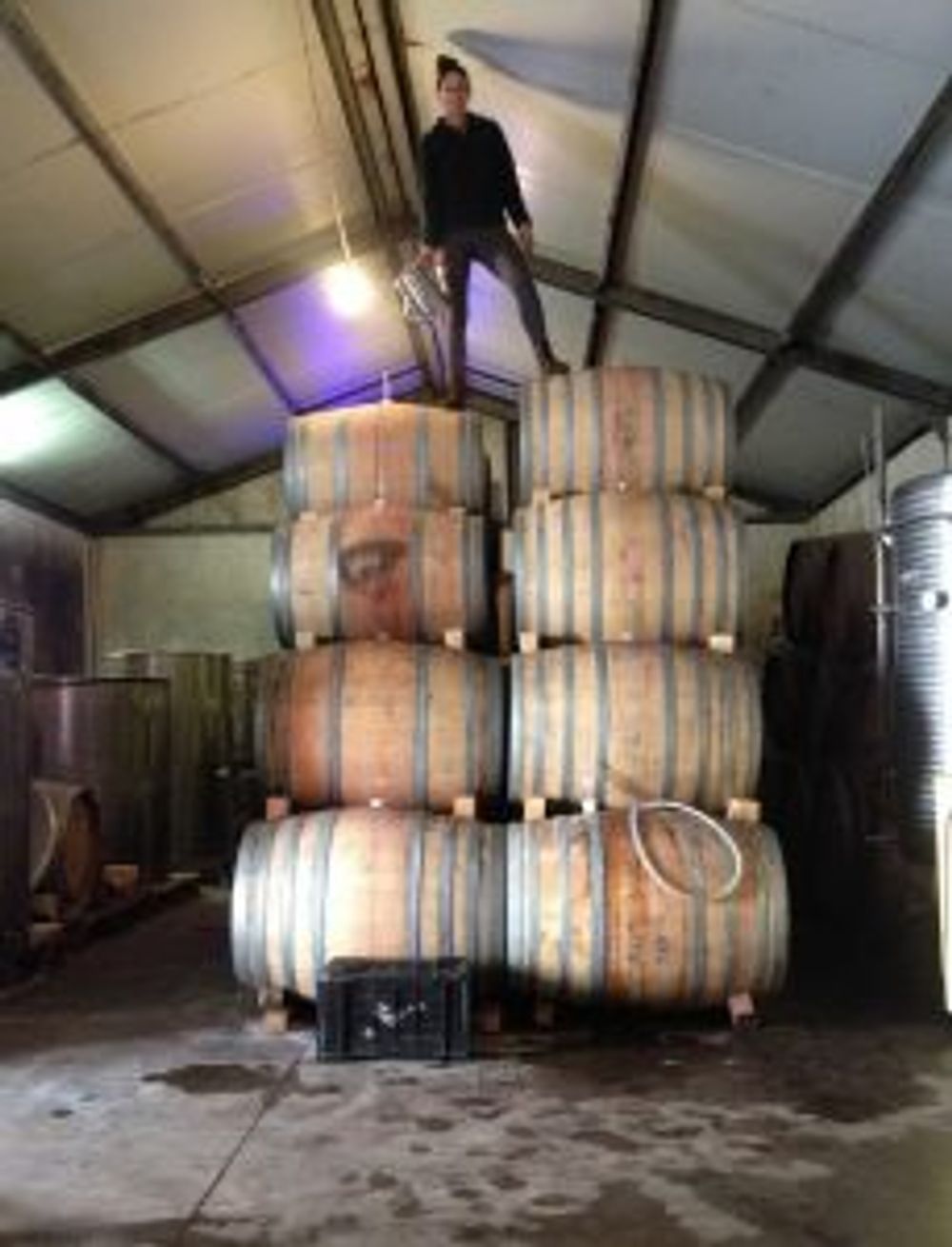
The blend changes every year so that none of his wines ever tastes the same. Half of the wines will not make a re-appearance. It’s the philosophy of an artisan who destroys the mould after a limited run artwork.
“I experiment. If it is a new vineyard I make one barrel and see how it goes,” Walser says.
“People who expect the same thing from a wine? They are not my clients. I appeal to the adventurous wine drinker and they buy my wines because they trust me – they give me money to take them on a journey.”
Apart from Limbic and Moment of Silence other wines have equally enticing names – Orbitofrontal Cortex, Koffer, Confessions of a White Glove Chaser and Aasvole which means ‘vulture’ in Afrikaans, on account of the story behind how he got hold of the grapes.
If sommeliers need stories in which to hand-sell boutique wines such as BLANKbottle’s then the concept behind the wine is tailor-made for this. Although there is no information on the label, there is a QR code that reveals the varietals and story behind the wine.
Everything is original
Quite apart from the grapes, wine and name, each of Walser’s wines have different, distinctive-shaped bottles and a unique label all handmade with original artwork by Walser out of woodcuts, linocuts and painting.
“My approach is that first I have got to make great wine. I have to then put it into a bottle, so why on earth put it into a boring bottle? I buy exciting-shaped bottles.”
“I buy from a vineyard that has a great story, make the wine, then it starts to take shape – the shape of the bottle, the name of the wine and then the label. It has got to be intriguing, the taste of the wine, the way it’s packaged, I like the wine to have many layers and the more layers there are the better.”
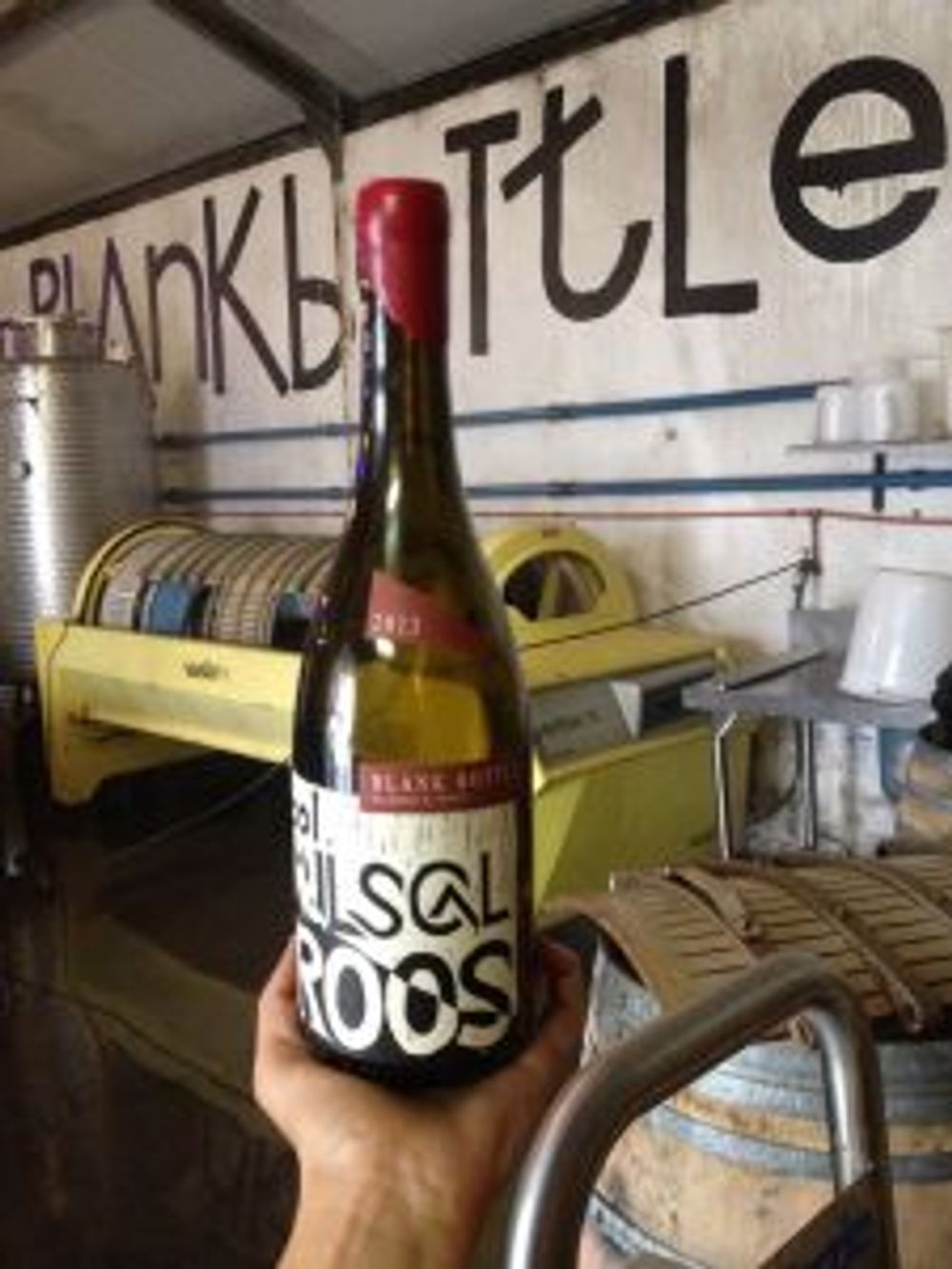
As for the winemaking itself Walser likes to adopt a non-interventionist approach. The wines are made in old oak barrels and left on the lees with no sulphur or enzymes added. After the winter he adds a small bit of sulphur prior to bottling. “I want my wines to be as naturally made as possible and I like it when grapes challenge consumers, but having said that I don’t want the wine to taste like bacteria. I want the wine to taste great and I want people to taste the vineyard.”
“I am not here to make perfect wines, all of them have some fault and that is true to the story.”
“My way of thinking? I think it’s not to think too much.”
When Blank Bottle first started they were exclusively off-trade, selling through the Craft Wine section in South Africa’s Woolworth’s stores. Walser offered a money back guarantee so that if anyone disliked the wine he would send a dispatch driver to collect the bottle and give a refund.
“It happened with four or five wines but it doesn’t happen any more.”
Quite the opposite, BLANKbottle is hot property, the wines are getting rave notices and they’re getting snapped up by the best places.
Ironically the success of Limbic (the first bottling sold out almost immediately), means that there is real demand for a repeat vintage, which is testing the purity of Walser’s concept.
“The idea was not to repeat it but the neurologist wants to do it next year. All the wine has gone because it was so super popular, but if I do do it again it will have to be to the next level, perhaps make it a long-term project to see how my sub-conscious has changed over that period of time”
Three of the best from Swig’s latest portfolio tasting
Don’t be misled into thinking Pieter Walser’s wines are purely conceptual and gimmicky. This would be to underestimate the quality of the winemaking. Swig sell his wines to the on-trade and have 12 new wines in the current portfolio. Here are three that I particularly liked.
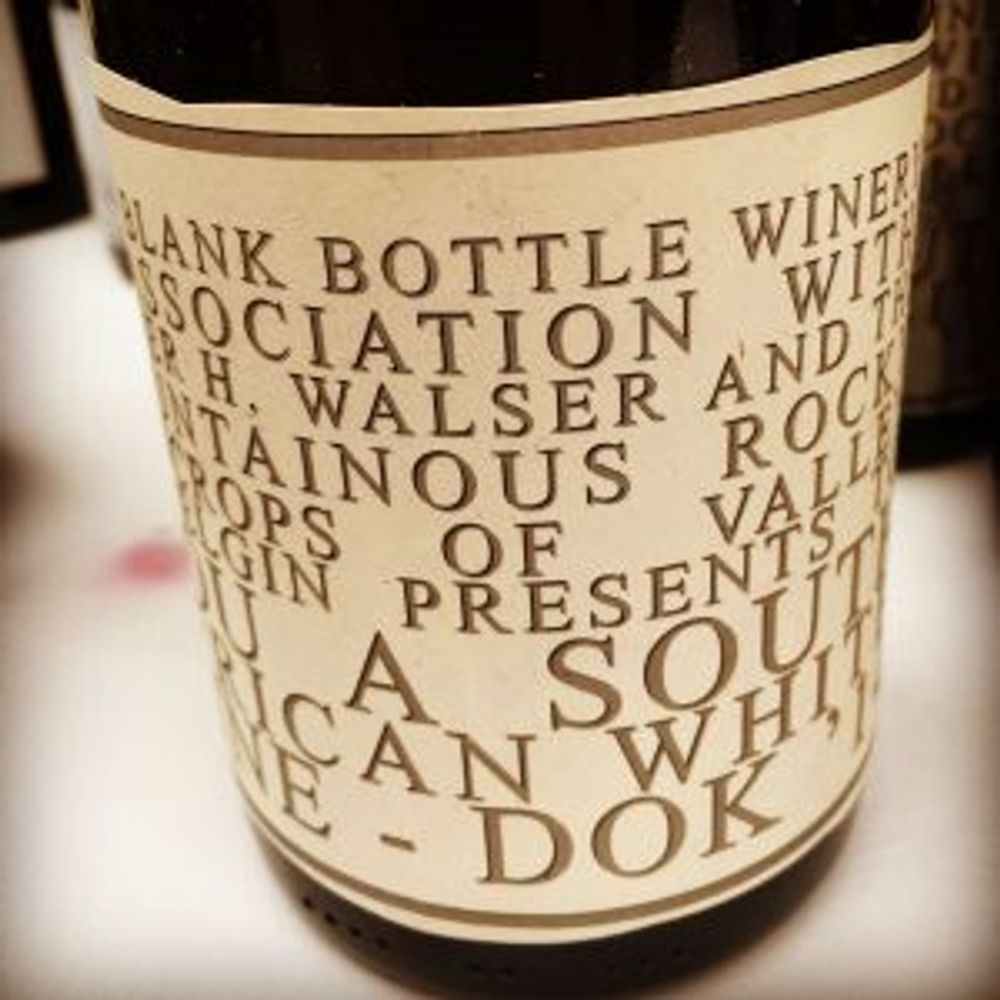
DOK 2014
(Riesling, Sauvignon, Semillon)
A sumptuous Bordeaux white blend with a lovely sweet edge. It has elevated, inviting floral aromatics, complexity and minerality.
Moment of Silence 2015
(Chenin, Chardonnay, Viognier)
Surprisingly conventional in its structure and taste. This is an Old World blend that has lovely juicy fruit – citrus, apples – coming through the mellow middle palate that is created by the Viognier. Delicious.
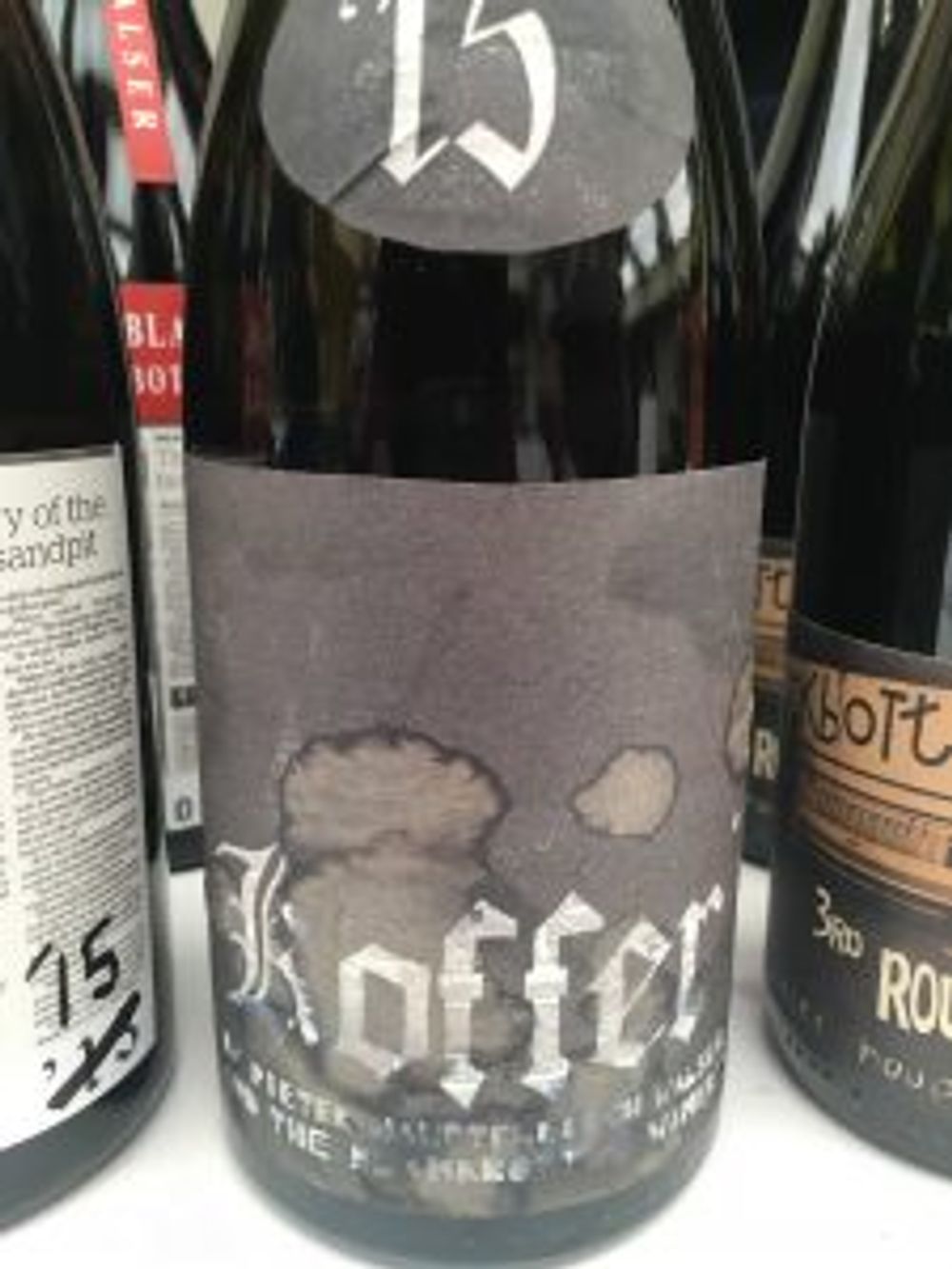
Koffer 2015
(Cinsault)
What a nose! This is very rounded for a 100% Cinsault from South Africa, much more so than a recently-tasted bottle of Pofadder. It has a lean grip, but lots of fruit.
